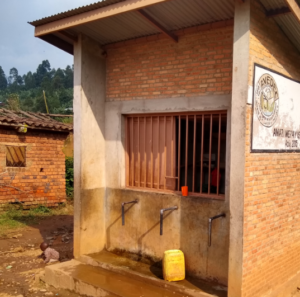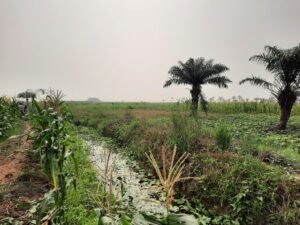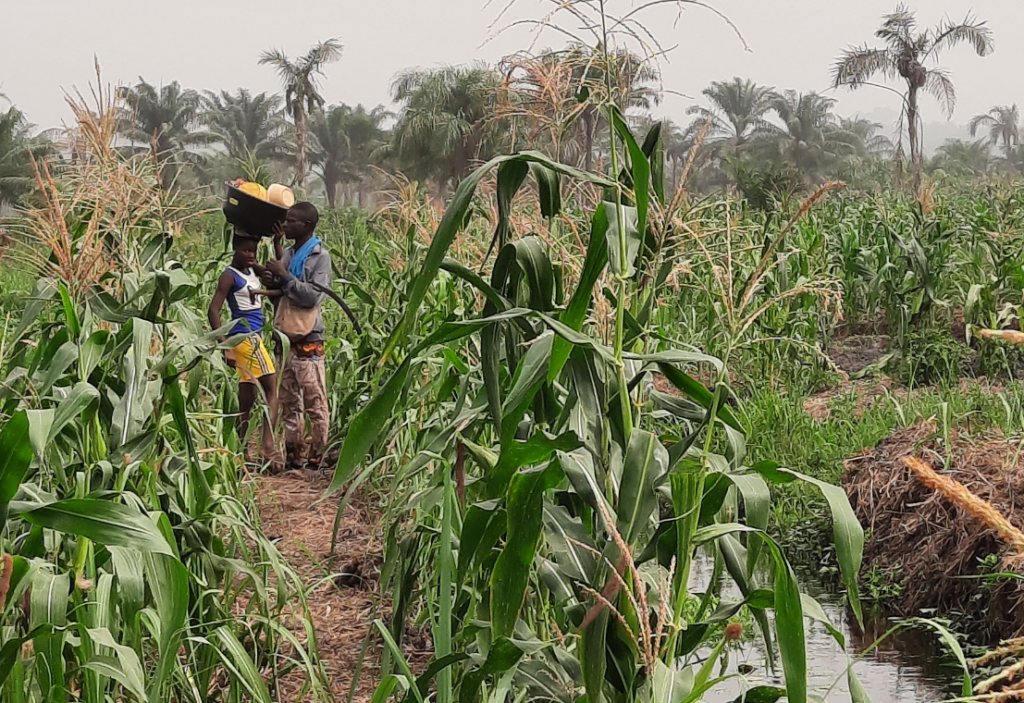Benin – One of the primary dilemmas surrounding ecosystems revolves around determining the source of funding for their protection and restoration. Water-related ecosystems, in particular, offer a diverse range of services, including flood prevention, irrigation water for agriculture, fishing opportunities, and facilitating transportation. If properly maintained and protected, those services present a valuable opportunity for local communities to generate additional income which gives them incentive to preserve it and/or reinvest money for its maintenance.
Join For Water has implemented several financial mechanisms aimed at bringing adequate revenue that subsequently contribute to sustain its protection and conservation efforts. While some mechanisms have proven successful, others remain in experimental phases. We have identified 4 main types of financial mechanism models, that is payment for ecosystem services, compensation model, locally-reinvested funds model and external source of funds model.
Payment for ecosystem services

In Burundi and Uganda, Join For Water has built drinking water infrastructures for the local communities. The villagers need to pay a certain amount of money depending on the volume of water they buy. The fees are collected by community-based committees, formed and trained by Join For Water’s partners (in Burundi), or by the government’s public water utility company (in Uganda), and reinvested in maintaining the drinking water infrastructures.
This mechanism has been successfully implemented and has shown good results over time as the infrastructures remain operational to this day.
Riverbanks of the Semliki river in Uganda are damaged by cattle coming to drink. Hence, to protect them, the government has established a buffer zone where breeders are prohibited to enter. Join For Water is providing an alternative source of water for the cattle, that is access to groundwater through cattle troughs. The farmers need to pay a fee to use the cattle troughs and access to water. This monthly fee is collected by a committee and kept on the book records for future operation and maintenance works on the cattle troughs.
Compensation model
In Uganda, the Democratic Republic of Congo (DRC) and Mali, Join For Water is introducing alternative income-generating opportunities for local communities. This initiative aims to discourage excessive exploitation of ecosystems like forests. Indeed, it is reasonably assumed that by providing communities with economic benefits derived from the ecosystem, they will be more inclined to protect it. Among the experimental activities being tested, beekeeping stands out, alongside initiatives such as mushroom farming and handcrafting. These revenue-generating activities are currently being implemented, hence, positive outcomes for the ecosystems are not observable yet.
Locally-reinvested funds
This financial mechanism suggests that the enhanced revenue stemming from the ecosystem services can be reallocated to sustain and protect the ecosystem and/or the infrastructure which help to deliver these valuable services.
In Benin, Join For Water and its partner CREDEL cleaned agricultural drains. The sediments, rich with nutrients, removed from the drains are placed on the parcel, consequently enriching the land. Moreover, floodwater withdraws faster from the farmlands via the drains, allowing the farmers to seed crops earlier in the season. After one year, the farmlands are already demonstrating an increase in yield compared to lands where drain cleaning did not occur, suggesting that this yield improvement is likely attributable to the process of drain cleaning. Our partners are currently collecting more data on the yield increase.
In Burundi, we are building micro dams on farmers’ land to catch runoff water along the steep slopes of the hills. This stored water will be used for irrigation, allowing farmers to irrigate crops during the dry season. We can reasonably assume that yield will increase. These dams require maintenance, such as sediments removal, in order to function properly.
In both countries, the assumed enhanced crop yields lead to increased profits, enabling farmers to allocate some funds to ensure the durability of our interventions (drains and micro dams cleaning). A financial analysis is required to estimate the revenue growth attributed to drain or micro dams cleaning compared to the associated costs. This evaluation will facilitate the determination of the appropriate percentage of revenue to save per harvest cycle. This financial mechanism is still in an experimental phase.
External source of funds
This model implies that an external source of funds is used to protect and/or restore the ecosystems and its services.
In the Andes, a binational fund was created to protect the ecosystems within the transboundary water catchment. The funding will come from different sources: governments (both in Ecuador and Peru), companies that are benefiting from clean water such as rice farmers, and water companies which receive water fees from the local communities. This binational fund is in a pilot phase and not fully operational yet.

In Benin, Join For Water is testing production forestation as a financial mechanism to sustainably manage canals. These large canals serve for transport, connecting villages and facilitating trade in the local market and with larger cities. Agricultural drains allow for increased agricultural activity. As a first pilot, fast-growing Eucalyptus trees were planted on land owned by two villages. A committee composed of village representatives was created, establishing official cooperation and coordination of activities. They are responsible for the financial management of the production forestation and for the maintenance of both the canal and the trees. Join For Water and its partner made a financial analysis to confirm that the production forestation will be cost-efficient, foreseen to be profitable within 4 years after the plantation.
Join For Water is currently evaluating the implementation of production forestation on municipality-owned land in Benin. However, the revenue from the Eucalyptus production may not be sufficient to maintain extensive canals. This initiative should be coupled with additional funding from government. This financial mechanism involves the creation of a budget line at municipality level as the canal’s maintenance officially falls under the responsibility of the municipality. An adequate budget should be allocated to their maintenance and would complement the revenue from the production forestation.

